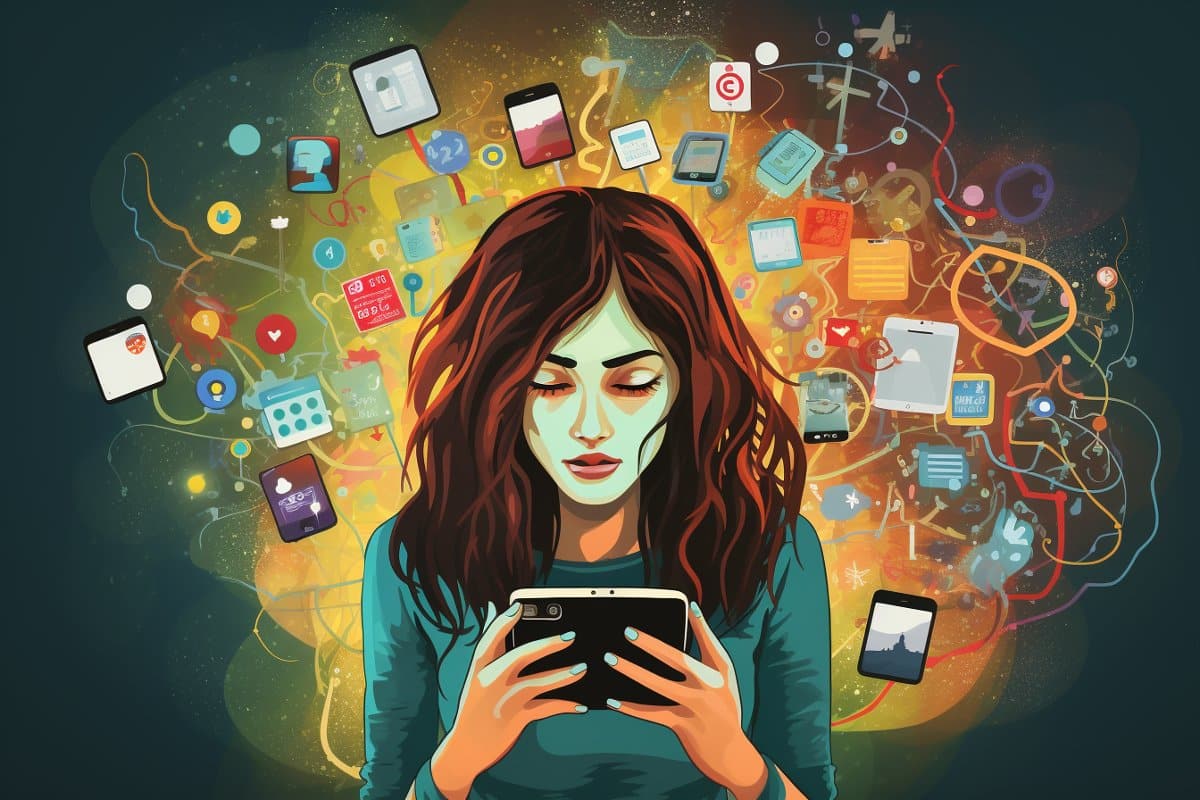Social Media vs. Reality: Examining the Disparity Between Online Personas and Real-Life Experiences
The rise of social media has transformed how we interact, share information, and present ourselves to the world.
While these platforms offer unprecedented connectivity and opportunities for self-expression, they also foster environments where the disparity between online personas and real-life experiences can be significant.
This article delves into the complexities of this phenomenon, exploring the motivations behind curated online identities, the psychological impacts, and strategies for bridging the gap between social media and reality.
The Construction of Online Personas
Curated Identities
 Social media allows users to create highly curated versions of themselves. This curation often involves selecting and sharing moments that highlight positive aspects of one's life while omitting the mundane or negative experiences.
Social media allows users to create highly curated versions of themselves. This curation often involves selecting and sharing moments that highlight positive aspects of one's life while omitting the mundane or negative experiences.
Platforms like Instagram and Facebook are rife with images of exotic vacations, perfect meals, and happy relationships, creating an illusion of a perpetually idyllic life.
Motivations Behind the Mask
Several motivations drive individuals to construct idealized online personas. The desire for social approval and validation is a significant factor. Likes, comments, and shares provide instant gratification and a sense of belonging.
Additionally, people often use social media to build personal brands, enhancing their professional and social status by showcasing a desirable lifestyle.
The Role of Algorithms
Algorithms on social media platforms play a crucial role in amplifying these curated identities. By prioritizing content that garners high engagement, these algorithms encourage users to post attention-grabbing, often idealized content.
This can lead to a feedback loop where only the most polished, engaging posts are visible, reinforcing unrealistic standards and expectations.
Psychological Impacts of the Disparity
Comparison and Envy
The disparity between online personas and real-life experiences can lead to negative psychological effects, particularly through social comparison.
When individuals compare their everyday lives to the highlight reels of others, it can result in feelings of inadequacy and envy.
This phenomenon, often referred to as "compare and despair," can significantly impact mental health, leading to anxiety, depression, and lowered self-esteem.
Imposter Syndrome
The pressure to maintain an idealized online persona can also contribute to imposter syndrome. This condition is characterized by feelings of fraudulence and the fear of being exposed as a "fake."
When individuals present a version of themselves online that is not fully aligned with their true selves, the dissonance can create significant stress and undermine their sense of authenticity.
Isolation and Loneliness
Ironically, while social media connects us to more people than ever before, it can also lead to feelings of isolation and loneliness.
The curated, often superficial interactions online can lack the depth and authenticity of real-life relationships. As a result, individuals may feel disconnected despite being constantly "connected."
The Reality Check: Bridging the Gap
Authenticity and Vulnerability
One way to bridge the gap between social media personas and real-life experiences is through authenticity and vulnerability.
Sharing more genuine, unfiltered moments can help create a more balanced and realistic portrayal of life. This can foster deeper connections and provide relief from the pressure to maintain a flawless image.
Digital Detox and Mindfulness
Engaging in regular digital detoxes can also be beneficial. Taking breaks from social media allows individuals to reconnect with the real world and reflect on their usage patterns.
Mindfulness practices, such as meditation and journaling, can help individuals stay grounded and maintain a healthy perspective on their online activities.
Critical Consumption
Being a critical consumer of social media content is crucial. Recognizing that what is seen online is often a polished version of reality can help mitigate the effects of social comparison.
Following accounts that promote positivity, authenticity, and mental health can also create a healthier online environment.
Encouraging Honest Conversations
Encouraging open and honest conversations about the impacts of social media can also help bridge the gap. Sharing experiences and challenges related to social media use can normalize these feelings and provide support. Communities and platforms that prioritize mental health and authenticity can play a pivotal role in this effort.
Conclusion
The disparity between social media personas and real-life experiences is a complex issue with significant psychological implications. By understanding the motivations behind curated identities and the impacts of these online personas, we can develop strategies to foster authenticity and well-being. Bridging the gap requires a collective effort to promote genuine interactions, mindful consumption, and supportive communities. Embracing the reality behind the posts can lead to a healthier relationship with social media and a more balanced, fulfilling life.
References
- Here's How Social Media Affects Your Mental Health
- The Social Media Feedback Loop
- Social Comparison and Mental Health - SpringerLink
- Social Media's Effect on Self-Esteem: How Does It Affect











































![[ℕ𝕖𝕧𝕖𝕣] 𝕊𝕖𝕝𝕝 𝕐𝕠𝕦𝕣 𝔹𝕖𝕒𝕟𝕚𝕖 𝔹𝕒𝕓𝕚𝕖𝕤 - Have Fun Staying Poor](https://cdn.bulbapp.io/frontend/images/17e87f53-0225-4de1-995f-9f66198cb037/1)


